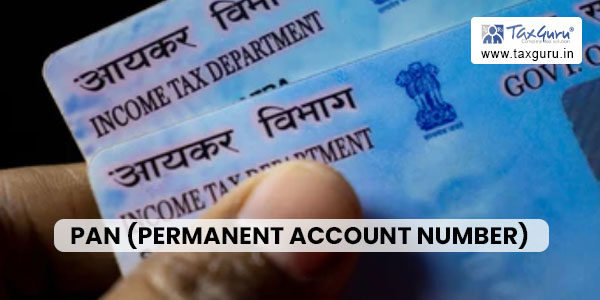“Unlock the significance of the Permanent Account Number (PAN) in income tax systems. Discover how PAN serves as a vital identifier for taxpayers, ensuring transparency, preventing duplicate accounts, and promoting tax compliance. Learn about its mandatory role in income tax filing, facilitating financial transactions, monitoring high-value transactions, and expediting tax refunds and assessments. Stay informed to navigate the taxation landscape effectively.”
The Permanent Account Number (PAN) is a critical component of income tax systems. It is a unique 10 digit alphanumeric identifier issued by the Income Tax Department to individuals, businesses, and entities. In this article, we will discuss the importance of PAN for income tax purposes, emphasizing its role in tax compliance, financial transactions, and the overall taxation system.
1. Identification of Taxpayers:
PAN serves as a crucial tool for identifying taxpayers within the income tax system. It provides a distinct identity for individuals and businesses, enabling tax authorities to link financial transactions, investments, and tax liabilities to the respective PAN holders. This aids in maintaining transparency and accountability throughout the taxation process.
2. Income Tax Filing:
PAN is a mandatory requirement for filing income tax returns in many countries, including India. It acts as a primary identifier when reporting income, claiming deductions, and fulfilling tax obligations. By associating PAN with the tax return, the Income Tax Department can accurately assess an individual’s tax liability, verify the accuracy of information provided, and deter tax evasion.
3. Prevention of Duplicate Accounts:
One of PAN’s significant advantages is its ability to prevent the creation of duplicate accounts and identities. With a unique PAN, tax authorities can easily identify individuals who attempt to open multiple accounts to evade taxes or engage in fraudulent activities. PAN acts as a safeguard, ensuring the integrity and credibility of the income tax system.
4. Facilitating Financial Transactions:
PAN is essential for conducting substantial financial transactions. It is a prerequisite for opening bank accounts, investing in securities, purchasing or selling immovable property, and engaging in high-value transactions. The inclusion of PAN in these transactions promotes proper documentation and monitoring, discouraging illicit activities such as money laundering and the circulation of undeclared income.

5. Monitoring High-Value Transactions:
PAN enables the monitoring of high-value transactions. Financial institutions and businesses are required to report transactions that exceed specified thresholds to the Income Tax Department, along with the PAN of the parties involved. This mechanism aids in identifying individuals involved in significant transactions, promoting transparency, and detecting potential instances of tax evasion or undisclosed income.
6. Access to Taxpayer Information:
PAN facilitates access to taxpayer information. PAN holders can log in to the income tax portal and view their tax-related information, including tax credits, deductions, and previous tax returns. This availability of information empowers taxpayers to stay informed, ensure accuracy in their tax filings, and have a comprehensive understanding of their tax compliance status.
7. Expedited Tax Refunds and Assessments:
PAN expedites the processing of tax refunds and assessments. When filing income tax returns, taxpayers provide their PAN, allowing the Income Tax Department to efficiently process tax refunds. Additionally, PAN plays a crucial role in tax assessments, enabling tax authorities to accurately identify and scrutinize taxpayer records.
Conclusion:
The Permanent Account Number (PAN) holds immense significance within income tax systems. It acts as a unique identifier, contributing to tax compliance, deterring tax evasion, and promoting transparency in financial transactions. PAN is vital for income tax filing, preventing duplicate accounts, monitoring high-value transactions, and providing access to taxpayer information. By recognizing the importance of PAN and adhering to its requirements, taxpayers contribute to the effectiveness and fairness of the overall taxation system.




